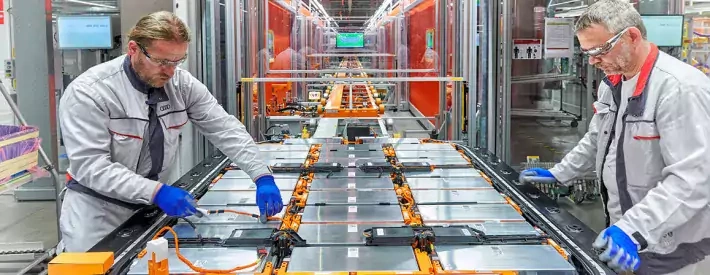Why batteries are going solid

If EVs are going to succeed they need more advanced batteries and that’s where solid state technology comes in
Solid-state batteries offer significant potential advantages over conventional lithium-ion batteries and could be transformational in meeting the UK’s net zero commitments through the electrification of transport.
That’s a big deal considering that the government is determined to ban new petrol and diesel passenger vehicle sales from 2030.
But what do solid-state batteries offer over the technologies found in the current crop of vehicles that we’re all starting to see on the roads and trickle into our businesses?
Well, they can hold more charge for a given volume leading to increased electric vehicle range and reduced costs of safety-management which could help bring EV range more closely in line with what is currently achievable in combustion engine vehicles. And it could also help reduce recharge times, another challenge in the switch to EVs.
Solid-state systems replace the liquid electrolyte in current batteries for a solid material, helping increase the batteries’ energy density while also making them potentially lighter and smaller.
The technology isn’t there yet though. Early applications of solid-state batteries is likely to be in consumer electronics, niche automotive applications and unmanned aerospace, before being used in broader EV markets.
Dr Allan Paterson, Chief Technology Officer at Britishvolt says: “Solid-state is the holy grail of battery solutions. Solid-state batteries have the potential to increase energy density significantly over battery technology available today and could dramatically, and positively, change the world of electric vehicles.”
Britishvolt has recently become part of UK-based consortium established to develop prototype solid-state batteries, which also includes The Faraday Institution.
Faraday forecasts show that in 2030 solid-state batteries could take a 7% share of the global consumer electronics battery market and a 4% share of the EV battery market . Global solid-state battery revenues from sales to EV manufacturers are expected to reach $8 billion by 2030 and then grow rapidly to 2040 and 2050 when the market is expected to become extensive.
But fundamental scientific challenges need to be addressed before high power solid-state batteries with commercially relevant performance can be developed.
It’s why the consortium of seven UK-based organisations has signed a memorandum of understanding to combine ambitions and develop prototype solid-state battery technology, targeting automotive applications.
So, while the EVs that are currently rolling into workshops for work use lithium-ion battery technology, in the next decade there could be a new technology on the block.




